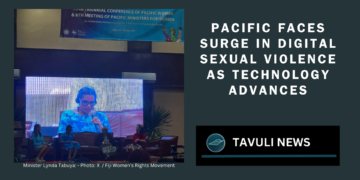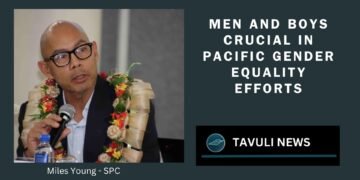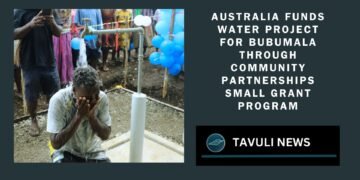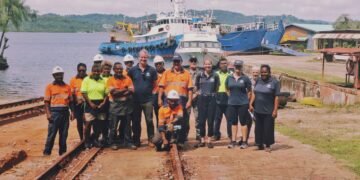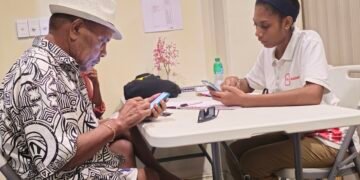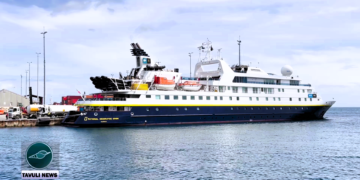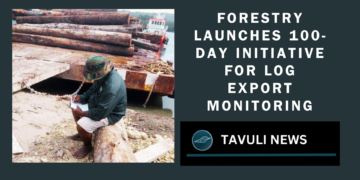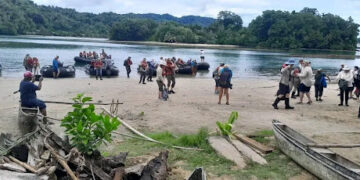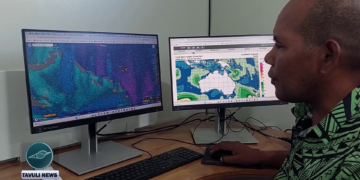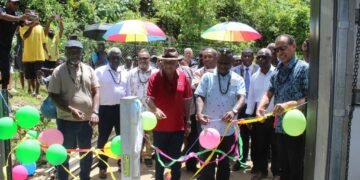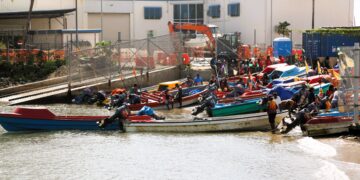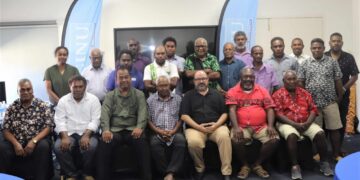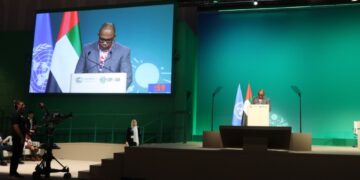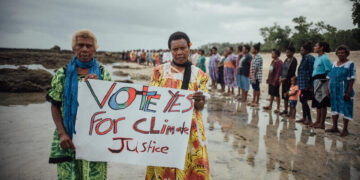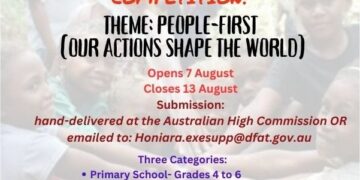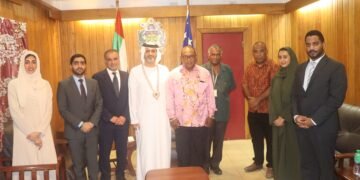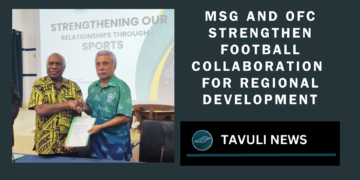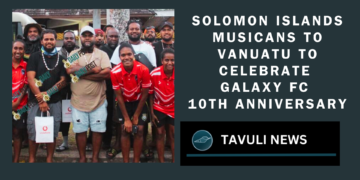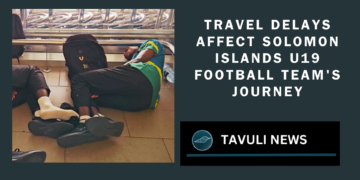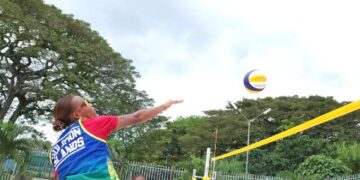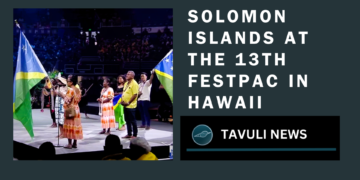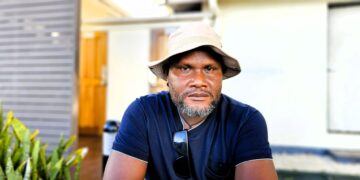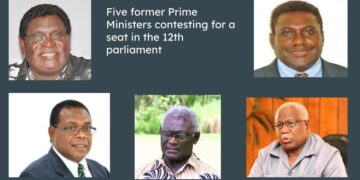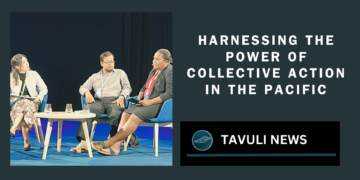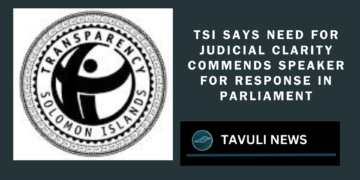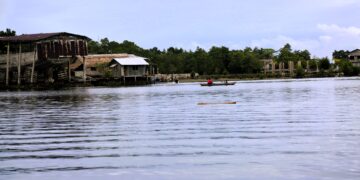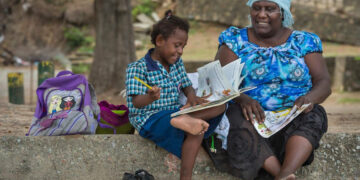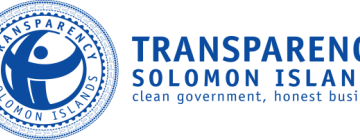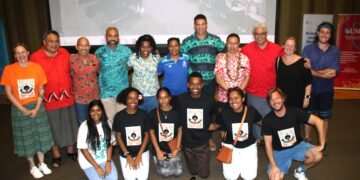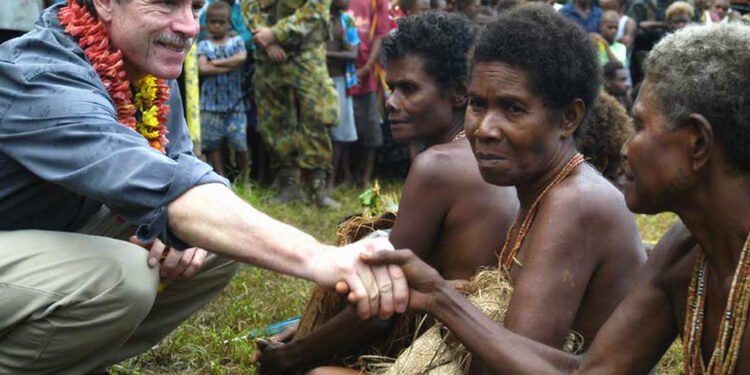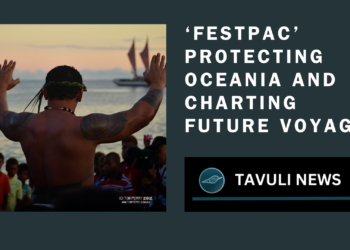In disarmament and quelling immediate violence, RAMSI was a success. Its state-building efforts, however, are more controversial.
BY ANOUK RIDE
As the 20th anniversary of the commencement of the Regional Assistance Mission to Solomon Islands (RAMSI) comes by, there will be several narratives about RAMSI promoted in Solomon Islands and globally. One of these is the narrative of RAMSI as a “success story”. But where does this narrative come from, and is it just a story, or a reflection of reality?
Initially, the success narrative was well supported when RAMSI came in 2003 and had a quick win in terms of disarmament. From 1998 to 2003, Solomon Islands had a civil conflict with widespread consequences for the archipelago of many islands (including 200 documented fatalities, with 10% of these being a result of fighting between militants from Guadalcanal and Malaita, as documented in the Solomon Islands Truth and Reconciliation Report). However, after arriving in July 2003, by
November RAMSI had removed 3700 weapons, arrested 773 people and laid over 1000 charges. Another 1,755 weapons were collected in 2002- 2003 by the International Peace Monitoring Team, churches and the National Peace Council.
The role of RAMSI in this short, sharp success in disarmament and cutting down violent crime was noticed and appreciated. In 2003-2004 a number of people named their babies “Ramsey” or other names related to the intervention. Women peacemakers that had lobbied their government to allow RAMSI into the country were thankful for disarmament, although subsequently sidelined.
Then RAMSI shifted focus to governance, but not in the way expected. Civil society’s desire for change, to build peace between people, make government to be decentralised and responsive to people’s priorities, and address the grievances of former militants, as listed in the Townsville Peace Agreement, was not on RAMSI’s agenda. RAMSI was not an international intervention to reshape governance in light of what led to the conflict in the first place, as what would be expected in
UN-led conflict interventions.
Being present only by invitation of the same government that had let the country unravel, RAMSI instead became “an intensive state capacity building programme”. Advisers were installed in key government institutions, and the intent of RAMSI was to work within Solomon Islands Government for reform and “good governance”.
While expectations of RAMSI were high, following the success of disarmament, its goals were somewhat regressive, to “restore law and order” and the “state”, rather than to imagine systems that would foster peace. The assumption of this narrative was of course that the state in its previous iteration worked well and provided security. Other forms of governance, such as indigenous systems based around chiefs and local leaders, or provincial level governance, were overlooked. With the rationale of RAMSI being built from the narrative of Solomon Islands as among the “failed states”, that would open up an “arc of instability”, it was destined to be a “statebuilding” mission. With this focus and approach, so began the disputes over what “success” for RAMSI would look like in post-conflict Solomon Islands.
Meanwhile, RAMSI invested in the success narrative further by funding public relations teams (the products of which can still be seen on www.ramsi.org) and in commissioned research). In terms of the latter, RAMSI invested in the “People’s Survey”, yearly quantitative surveys, where members of the Solomon public were asked questions about security. The question on RAMSI was fairly narrow. The survey asked for feedback as follows: “Do you support the presence of RAMSI in
Solomon Islands?”
Australia wanted to be seen positively, and with Pacific traditions of not wanting to be impolite through direct criticism to a person’s face, and lack of familiarity with being asked questions by people with clipboards, the potential was always there for a positive spin on how people answered the question. The impetus from both sides to tell Australians they were the good guys can be seen in other reports where development practitioners and officials reported this pressure, saying
it was “hard to criticize” RAMSI.
So, high rates of “yes” responses for the RAMSI question remained through most of the People’s Surveys; in 200790% of respondents said they supported the presence of RAMSI and in 2013 it was 86%. These statistics were commonly used to indicate that RAMSI was a success, and that it was supported by Solomon Islanders.
However, to fact-check the success narrative it should probably be read in conjunction with the perception of people of the local police, the Royal Solomon Islands Police Force (RSIPF) that were supposed to take over when RAMSI left. In the 2007 report, 63% people who reported a matter to police were satisfied with the outcome; while by 2013, it was 60%. For the most often experienced physical violence, family violence, another study of women’s experiences with police found
similarly high rates of dissatisfaction, based on biases of officers, lack of action by police, and absence of information or referrals by officers. It is perhaps a sign of the power of the success narrative, that these figures are not widely known, given the shocking lack of progress they reveal in terms of service delivery to Solomon Islanders.
An independent study which took a narrative approach to asking people what the impact of RAMSI and aid was on their lives, found while the initial disarmament and peacekeeping was appreciated, there was strong lines of critique of RAMSI amongst the general public. Respondents complained that “boomerang aid” was spent in high salaries for expat workers, inflated rents of their large houses and expensive cars and the system was more like a Aussie club than a partnership. Local
people working in aid, government and community organisations said expat staff were privileged in terms of resources, promotions, salary, access to elites and other benefits over their local counterparts. Complaints from government officials include the high salaries given to advisers vs. public servants, the lack of capacity building of local staff, the failure to act on previous negative feedback regarding advisers, and the time taken up by endless briefing of advisers and other staff on short rotations.
Meanwhile, Solomon and Pacific scholars queried whether RAMSI, by design, would ever be a success. Tarcisius Tara Kabutaulaka criticised RAMSI as too directive, Australian dominated, and focused on building the national government over other forms of governance such as local governance by chiefs, churches and others. He also wrote about the need for the West to recognise its own role in creating ethnic stereotypes and violence during Solomon history and move beyond
simplistic interpretations of the conflict, Solomon people and systems.
Sam Alasia, wrote on the political climate and characterised RAMSI as being too directive, or dictating, and pointed the need for other means to address security; with a particular focus on land reform as a priority. A range of Solomon academics early on staked their ground on the need to get to the roots of the conflict, problems ranging from land use and rights to leadership. They started unpicking RAMSI success narratives, but also raised alarm about the need for attention
to causal factors of conflict.
Examination of how RAMSI worked and its appropriateness for the Pacific was also mentioned in reviews of RAMSI by other PacificIslanders. A review of RAMSI by the Pacific Islands Forum Eminent Person’s Group in 2005 recommended working more openly with Pacific Island colleagues. By mid 2006, 88% of the 173 advisers were Australian, just 5% were Pacific Islanders, so, this staffing, coupled with Australia managing the money and design of RAMSI, translated into an inordinate influence compared to the Forum. The Eminent Persons suggested the “law and order” approach needed adjustment to an increased focus on reconciliation, to address the issues that led to the conflict.
Other islanders questioned the relation between RAMSI, the economy and conflict. Economics was a pillar under RAMSI, with the aim of stability and economic growth. However, as the economy grew, so did domination of Asian businesses in retail, extractive industries, construction and other key sectors. According to Shailendra Singh and Som Prakash from USP, the problem with RAMSI was the assumption that economic growth and a Western-style state, or “good governance” was the answer to conflict. Meanwhile “economic disparity and its social consequences are of little concern with the assumption that increases in GDP will trickle down, providing opportunities for all. Past experiences, both in the Pacific Islands and elsewhere, have demonstrated that this is rarely, if ever, the case.”
For Transform Aqorau, while good work was done under RAMSI, lack of leadership and the melding of business interests with politicians led to perversity: “It may be argued that whereas former militants held Treasury to ransom at gunpoint, MPs are holding Treasury to ransom through legislation and the Budget. The only difference between the two groups is the modus operandi through which Treasury is being held to ransom but is impact on the economy and the lives of Solomon
Islanders are the same.” In his analysis, the packaging of aid and government money into discretionary funds to be dished out by Members of Parliament, the ease by which foreigners can gain passports, property and licences, plus the related “legacy of corruption” created by logging, and then mining, has been so invasive into governance as to stymy intended progress from RAMSI.
Another Solomon academic Jack Maebuta bewailed “band aid development” that failed to push people such as informal settlement dwellers out of poverty and instability. In the city, rising rents meant Solomon Islanders had to move out to informal settlements on the outskirts of town, while expatriate personnel with RAMSI occupied prime real estate with sea views. For Maebuta, this was an example of RAMSI not solving conflict, but adding to its complexity and need for local input. The widening between poor and powerful was dramatized again during the November 2021 riots when those from the outskirts of the city looted
the stores within, carrying off meager supplies ranging from boxes of toilet paper to chainsaws back to their homes.
A review by the Office of Development Assistance in 2012 again questioned the approach of RAMSI, pointing out capacity building needed to demonstrate impact on services; it is the “activity of delivering a service itself that ought to be the focus of development and not the institutional capacity”. At that time 62% of the budget of law and justice institutions had been and was funded by Australia, indicating another key challenge; ongoing resourcing for services and likely dependence, an issue that becomes problematic in upholding the independence of the police and judiciary from politics.
By the time of RAMSI’s winding up and an independent review, there was little new to say that hadn’t already been raised, but only partially, or not at all, enacted. It concluded that RAMSI would have been better as a peacekeeping and peacebuilding operation, including support for the legal system, with bilateral and multilateral programs on governance and economic support, with the whole investment having more accountability and local ownership.
But by 2017, according to the Australian Government’s National Interest Analysis RAMSI “was successful” in: “restoring law and order”, “rebuilding critical law and order institutions”; “stabilising government finances”; “restoring business confidence”; and “rebuilding the Royal Solomon Islands Police Force (RSIPF)”. Even in 2019, the expatriate RSIPF Police Commissioner at the time was saying the police force was “the best in the Pacific”.
Looking back, the success narrative was promoted, and likely will continued to be promoted, even as intervention continues. Australian investment in “law and order” in Solomon Islands is still large, especially so in light of the security treaty signed between Solomon Islands Government and Peoples Republic of China. In its wake, Australia will assist with policing, border security, supplying the police with weapons, equipment, and has the Solomon Islands Assistance Force (SIAF) stationed in country at least until the elections in 2024. In governance, investment continues to be in training and other capacity building initiatives at the national government level. RAMSI is gone, but it lives on, in its types of assistance, the Australian framing of aid, and in its resulting tensions raised by Solomon Islanders, as signaled in the reports mentioned here.
This article deliberately focuses on authors from, or reports privileging, voices of people from Solomon Islands. There exists another set of literature by Australian and Western academics which have also raised the need for re-thinking RAMSI and development assistance in the ways Islanders have mentioned, as well as former
RAMSI personnel and other Australians writing about its successes.
Yet to be written is a critical mass of literature by others; by those positioned outside of Australian and Solomon political and bureaucratic decision makers; by local actors involved in creating peace; by staff who were “local counterparts” or still are working with advisors in bilateral programs; by leaders in local government
and civil society (including women and youth); by chiefs and religious leaders; by policemen and women, by artists and creatives.
My own interactions with RAMSI are peripheral. I was as an assistant on a project designed to ask Solomon Islanders how intervenors, at that time RAMSI, and local actors could prevent, and protect people from, violence. The facilitators at a session of people from different parts of the country asked the question: what suggestions did people have for knowledge needed by intervenors? A female civil society actor responded that was not the right question. She said the right question
was how can her cultural group understand other cultural groups in Solomon Islands, and how islanders can be involved in their own institutions, local and national, to create peace. There were murmurings of agreement amongst the group.
I think about that comment often. It reminds me how easy it is to internalise another person’s or institution’s narrative, without questioning its source and validity, and so avoid raising the questions that need to come from within. Researchers, analysts, development personnel, we were so busy focusing on what RAMSI was
doing and saying, that other narratives pointing to broader conditions for peace and security faded from view. We forgot to think about what would happen to the babies named Ramsey back in the early days of the RAMSI intervention. These people called Ramsey are in their late teens and 20s today. They have seen things
that their parents scarcely imagined would happen when they welcomed RAMSI as an end to armed conflict: three riots in the capital city of Honiara, police firing tear gas on villagers, COVID19 and the resultant lockdowns and deaths, crime and family violence, geopolitical rifts among Islanders, plus climate change and extractive industries changing their islands, sometimes irreversably. The youth that could be called Ramsey has low levels of trust in the police, unless he or she has come into contact with the programs of the Crime Prevention Unit of the RSIPF, and face difficulties accessing other key services like education, health and justice.
Will Ramsey, the man or woman, be able to live freely, without the fear of violence against themselves, their families and tribes, their land and sea, and their Pacific region? What narratives will Ramsey write about their police, governance, economy and their lives? The question of whether the success narrative of RAMSI can or should be believed, will ultimately be answered by these young Solomon Islanders named Ramsey, and their friends.
Dr Anouk Ride is an Affiliate Researcher with the Department of Pacific Affairs, Australian National University and the Initiative for Peacebuilding, University of Melbourne.
https://magazine.thediplomat.com/#/issues/-NYqTN66V-Y5JbSauHKv/preview/-NYqTNiV97z_eLt0Bmwk


